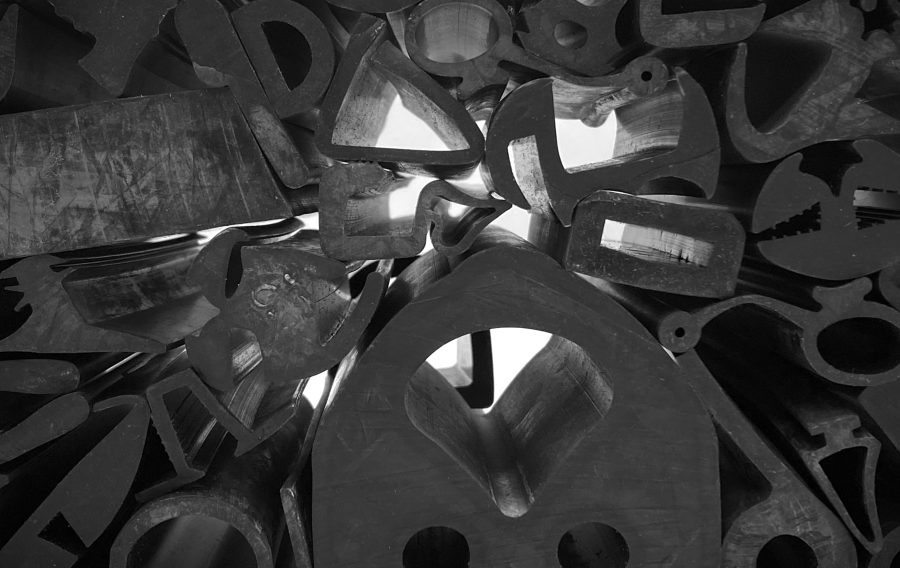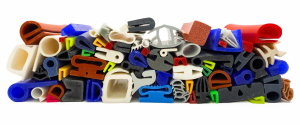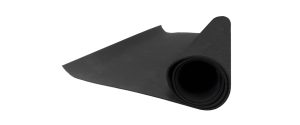
Rubber-based products are essential to the defence industry. The unique demands of military applications require materials that can withstand extreme conditions, from intense heat and cold to exposure to chemicals and physical stress. The use of British Standard (BS) grade materials is often a requirement to ensure consistency, reliability and quality in various defence applications. These standards provide a benchmark for performance to guarantee that the materials used can meet the high expectations of the underlying application.
Neoprene BS2752, Nitrile BS2571 and natural rubber Y1154 are often used within the defence and military sector. These grades conform to the specifications set by the British Standards Institution (BSI). They are suitable for different applications depending on the specific requirements, such as resistance to environmental factors, mechanical strength and flexibility, of each project.
Understanding the properties of these three British Standard grade rubbers is important to appreciate their significance for each defence application. Each type of rubber offers a distinct advantage that makes it suitable for specific uses, from sealing and protective gear to shock absorption and vibration dampening. This article from Seals Direct aims to explore the unique properties and applications of Neoprene BS2752, Nitrile BS2571 and natural rubber Y1154, and highlights their indispensable roles in ensuring the performance, safety and reliability of military operations.
Neoprene Rubber BS2752
Neoprene BS2752, also known as polychloroprene, is valued within this sector for its excellent balance of properties. It is highly resistant to weathering, ozone and aging so is ideal for use in harsh environments. Neoprene offers good mechanical strength, flexibility and a moderate resistance to oils and chemicals.
This material is often commonly used to manufacture rubber extrusions. This process involves extruding the raw rubber compound into different shapes suitable for a wide variety of applications. These include;
- Sealing and Gaskets: Neoprene’s resistance to weathering and chemicals makes it suitable for the production of seals and gaskets used in military vehicles and equipment. These help ensure a water and air tight seal to stop the entry of unwanted foreign objects that could damage sensitive equipment.
- Protective Gear: Neoprene is often used in protective suits and gloves due to its flexibility and resistance to various environmental factors.
- Shock Absorption: The ability of Neoprene to absorb shock and vibration is useful for applications such as mounts and pads in military machinery and vehicles.
Nitrile Rubber BS2571
Nitrile BS2571, or Nitrile Butadiene Rubber (NBR), is known for its exceptional resistance to oils, fuels and chemicals. Unlike other rubber compounds, Nitrile will not swell, spit or otherwise degrade when it comes into contact with these substances. It also exhibits good mechanical properties and temperature resistance which makes it a preferred choice for applications involving exposure to hydrocarbons and other chemicals.
Nitrile is commonly used for the following applications within the defence sector;
- Fuel Systems: Nitrile’s resistance to fuels and oils makes it ideal for fuel lines, gaskets and seals in military aircraft, tanks and other vehicles.
- Hydraulic Systems: This material is also commonly used in hydraulic hoses and seals due to its ability to withstand high pressure and temperature variations.
- Protective Seals: Nitrile can also be used to manufacture protective seals for various defence equipment. This helps ensure they remain functional under exposure to harsh chemicals.
Natural Rubber Y1154
Natural rubber Y1154 is known for its excellent tensile strength, elasticity and abrasion resistance. It performs well in dynamic applications, where flexibility and resilience is important to help create a long-lasting reliable seal. However, it has limited resistance to oils, chemicals and ozone compared to synthetic rubbers, such as Nitrile.
Natural rubber is suitable for the following applications;
- Shock Mounts and Pads: Natural rubber’s high resilience and shock absorption capabilities make it ideal for mounts and pads in military vehicles and equipment.
- Tires and Tracks: Its superior abrasion resistance is essential for the tyres and tracks of military vehicles. This helps ensure durability and performance in diverse terrains.
- Vibration Dampening: Natural rubber is widely used in vibration dampening applications to provide comfort and stability in military machinery and personnel carriers.
The defence industries reliance on British Standard grade materials highlights the importance of these rubbers in ensuring the performance, safety and reliability of military equipment. Each type of rubber material offers distinct properties that cater to specific applications and requirements. As the defence industry continues to evolve, the role of these high-quality rubber materials remains indispensable to meet the rigorous demands of modern military applications.








